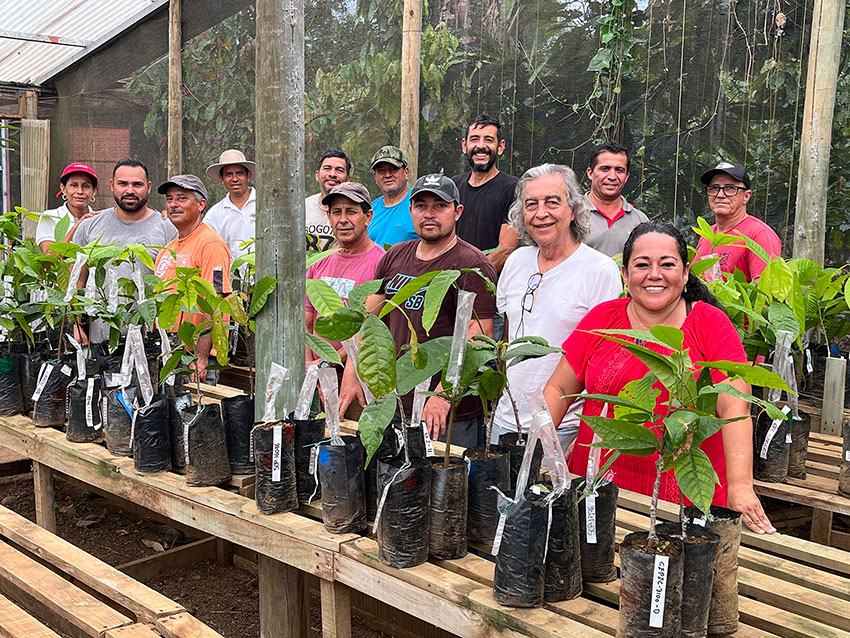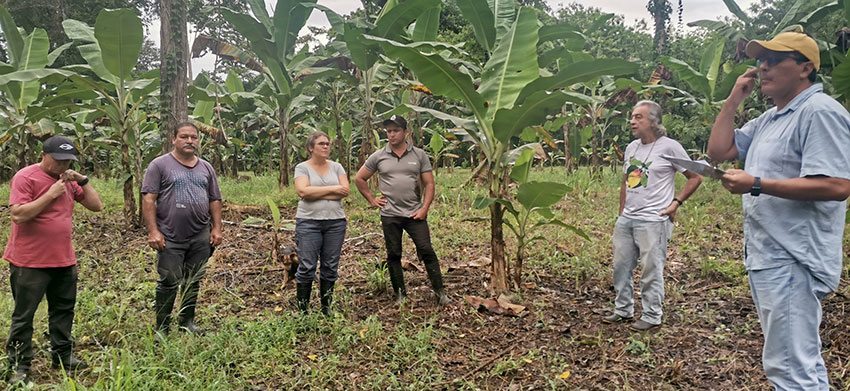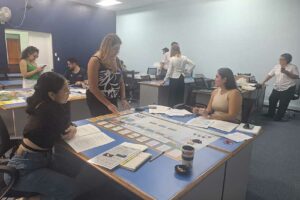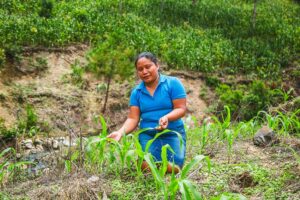CATIE hosts joint trial on cocoa diseases between Costa Rica, Brazil and Ecuador

- CATIE collaboration with CEPLAC (Brazil) seeks to improve cocoa production and quality in Latin America
- Study will evaluate the response of 120 cocoa clones to moniliasis, as well as their productivity
With the purpose of acquiring the necessary plant material for a new joint trial, the Tropical Agricultural Research and Higher Education Center (CATIE) received at its headquarters in Turrialba, Costa Rica, the researcher Uilson Lopes, from the Executive Commission for Cocoa Cultivation Planning (CEPLAC) of Brazil. Dr. Lopes brought with him cocoa clone seedlings that will be used for the reproduction of the plants to be used in the trial, in which CATIE is responsible for their propagation, establishment and evaluation.
The objective of this study is to evaluate the response of 120 cocoa clones to moniliasis, a fungal disease that causes low yields in this crop. The trial will also serve to evaluate the productivity of these plants, in order to select the best materials and make them available to growers. In addition to Costa Rica, the plants will also be evaluated in Brazil and Ecuador, since diseases can vary in their impact depending on the region and climate. In this way, the aim is to develop more robust management strategies adapted to different realities.
During his stay, Dr. Lopes and his assistant, David Pereira de Almeida, also visited the field selected for the study at CATIE's La Lola farm, located in Veintiocho Millas of Bataán, in the province of Limón. There, the coordinator of CATIE's Coffee and Cocoa Agroforestry and Genetic Improvement Unit, Rolando Cerda, along with researchers Adriana Arciniegas and Bénédicte Rhoné, and La Lola farm assistant Octavio Torres, showed them the preparations that include clearing the land, staking, digging holes and establishing temporary and permanent shade. These actions are essential to ensure the installation of the plants coming from Brazil and propagated at CATIE.

Cocoa is a plant highly susceptible to various pests and diseases, such as moniliasis, which can drastically reduce yields and jeopardize the economic stability of producing regions. “Research on cocoa diseases is critical because pests and diseases can cause significant damage to production, affecting the quality and quantity of the crop. In addition, climate change could influence the appearance of new threats or the intensification of existing problems,” said researcher Adriana Arciniegas.
Uilson Lopes, for his part, thanked CATIE for its collaboration in this study. “In Brazil, without CATIE, we would not be able to do this research, since we do not have moniliasis there. Ecuador and Costa Rica are important countries because of their experience, and we are developing technologies that are also useful for producers in other countries”.
The collaboration between CEPLAC and CATIE arose from the more than 30 years of experience and knowledge of the Cocoa Breeding Program, as well as the protocols developed at CATIE for the production of improved varieties for disease resistance, productivity and quality. The exchange of knowledge and techniques through this collaboration allows for the enrichment of research capabilities and the development of more effective solutions adapted to the local conditions of each region.
More information:
M.Sc. Adriana Arciniegas Leal
Researcher
Agroforestry and Coffee and Cocoa Genetic Improvement Unit
CATIE
aleal@catie.ac.cr
Written by:
Alejandro Portilla Navarro
Communicator
Communications and Marketing Office
CATIE
alejandro.portilla@catie.ac.cr



